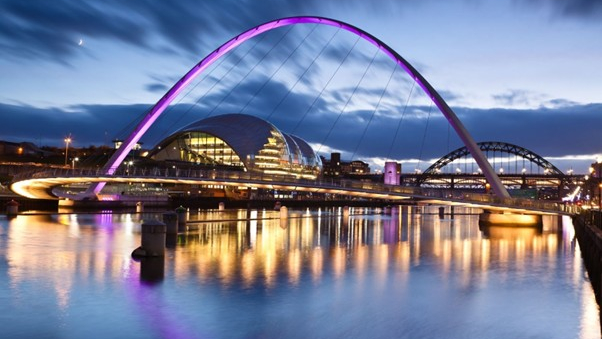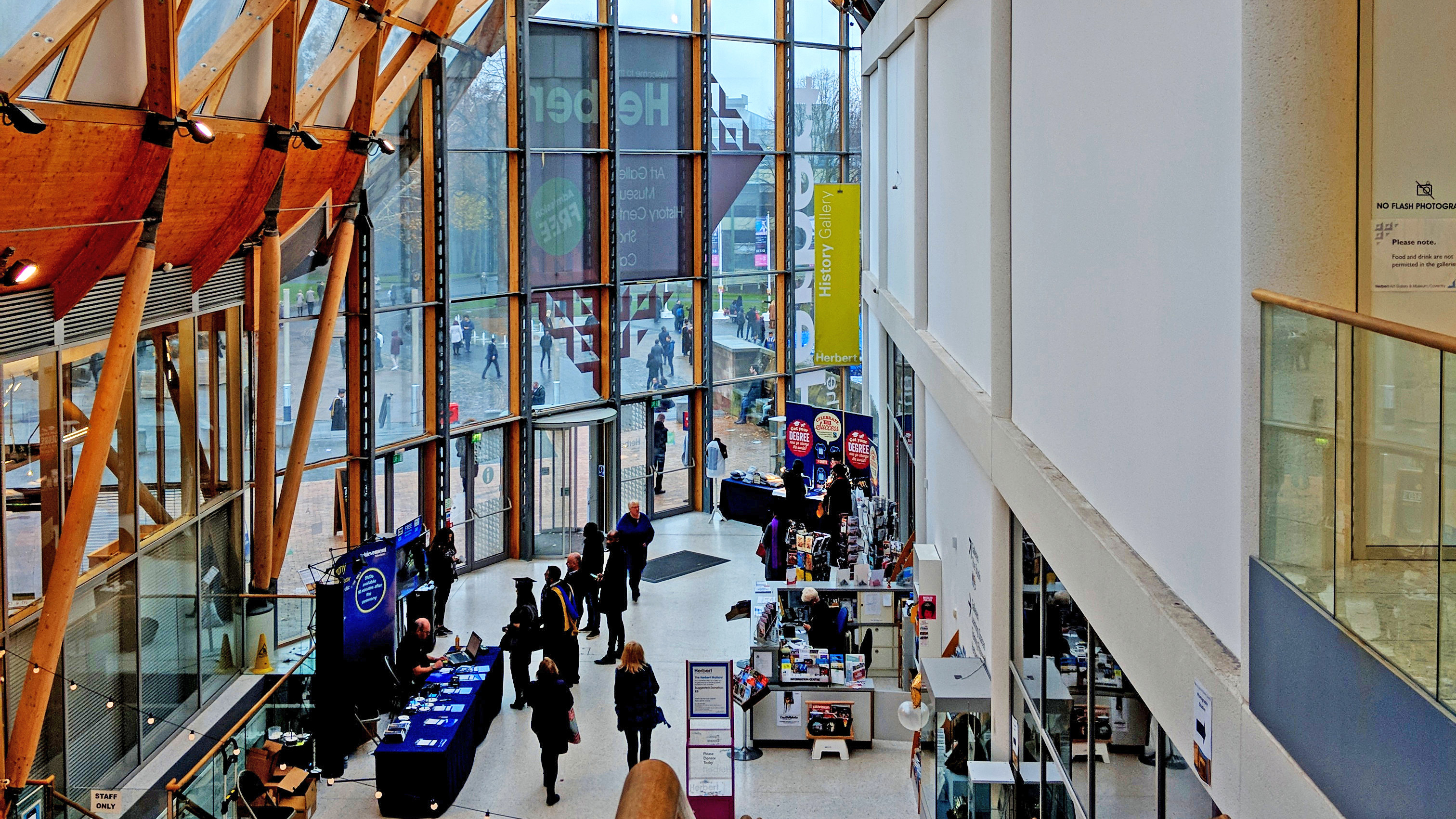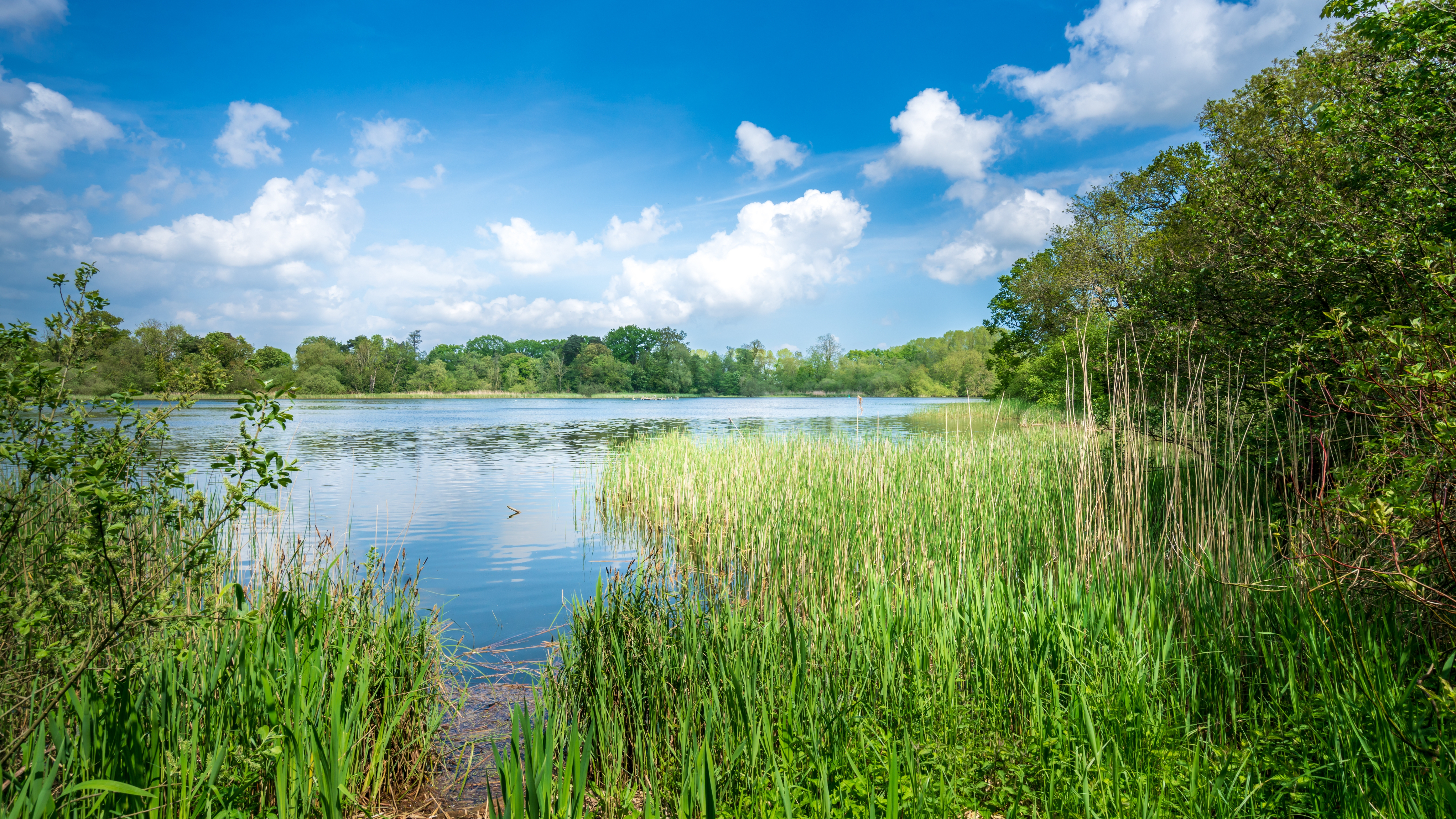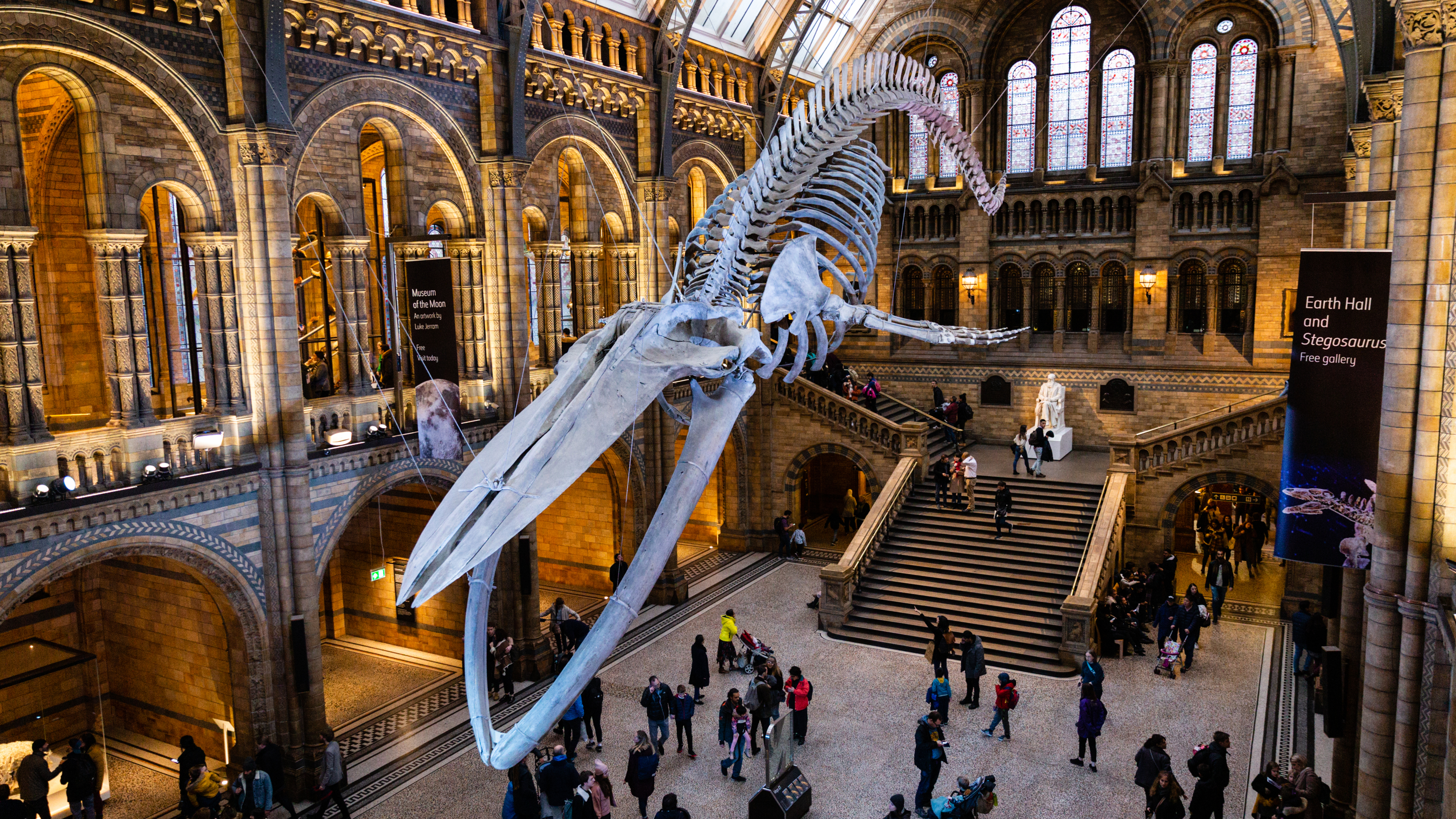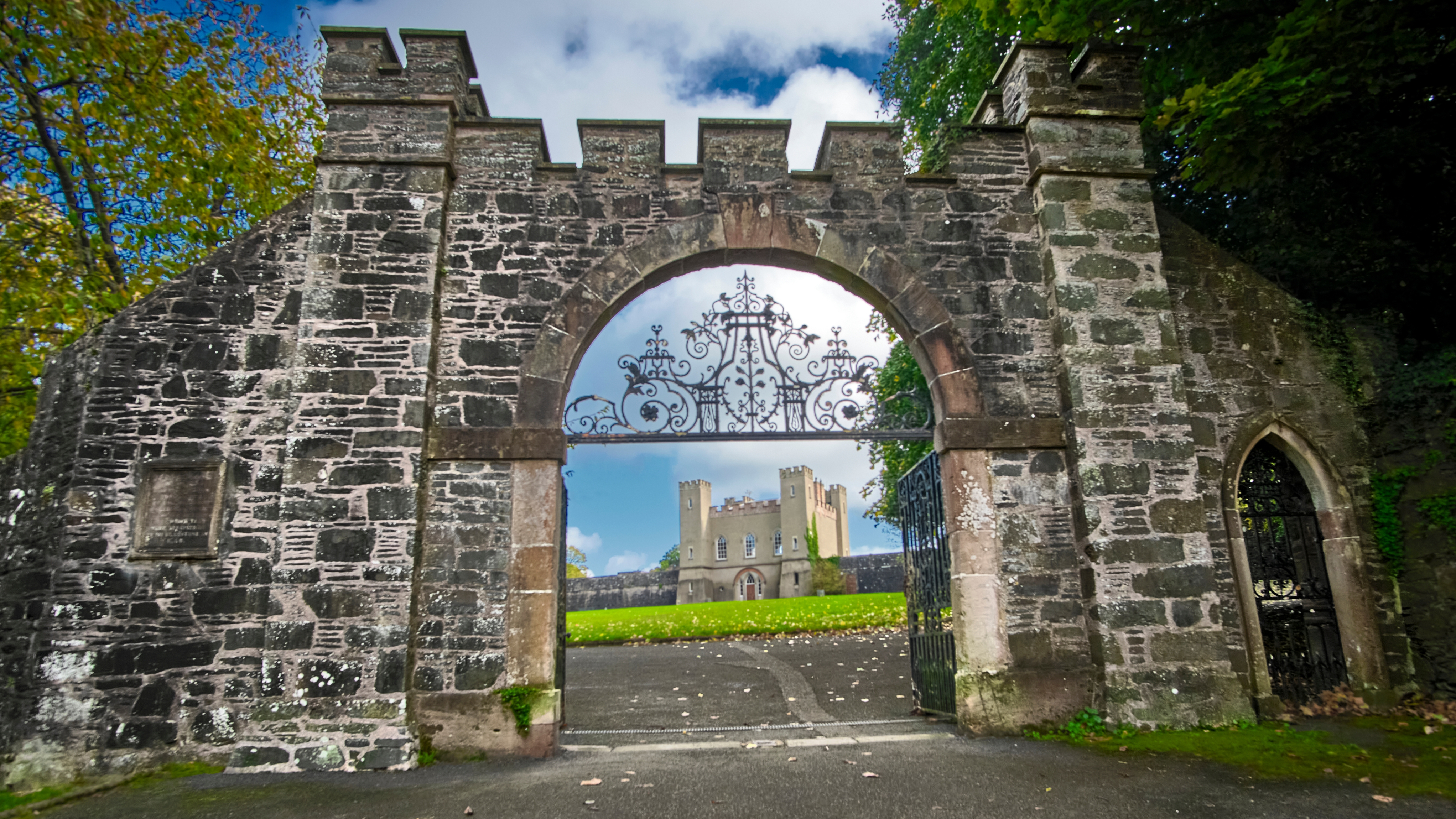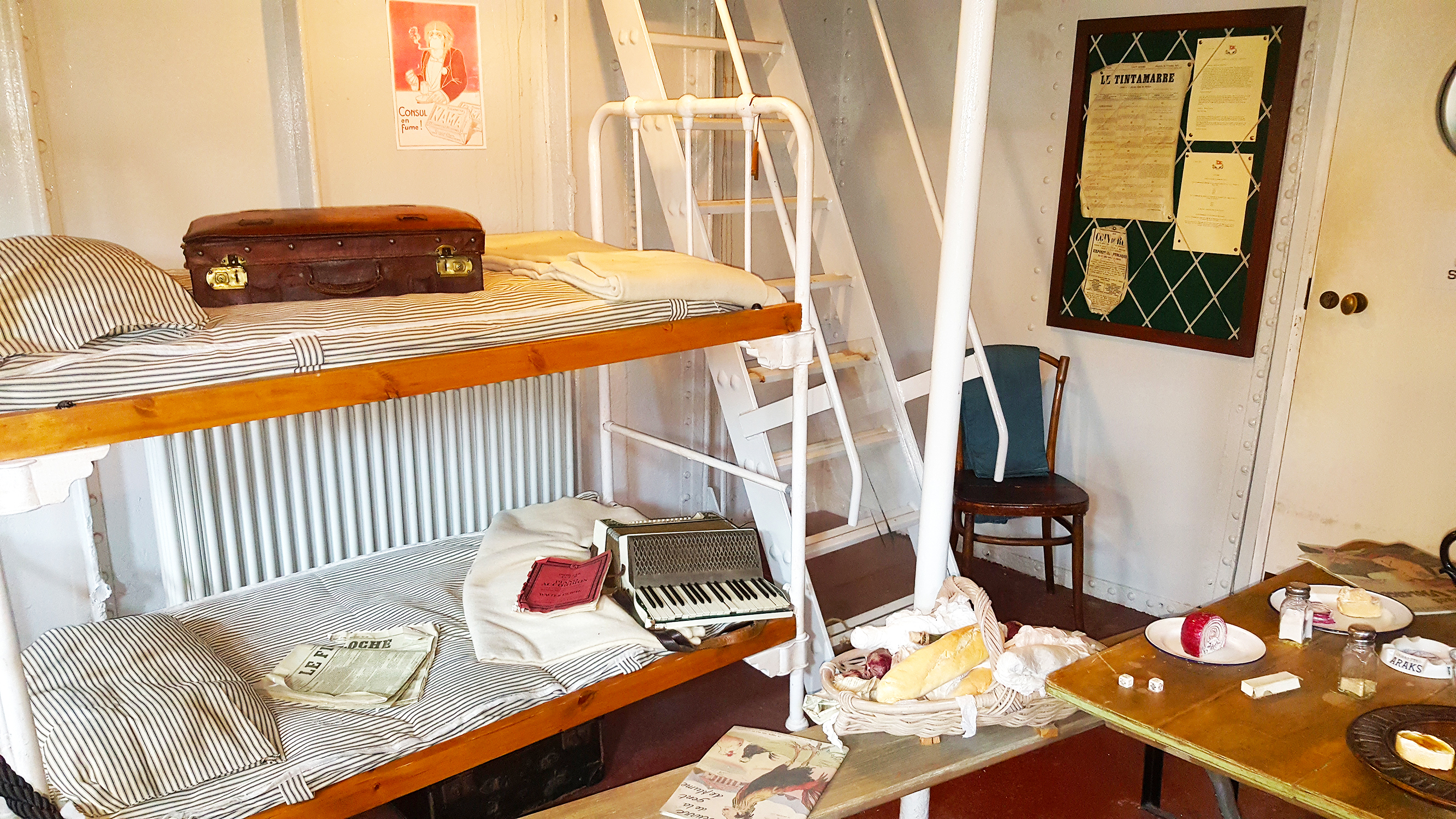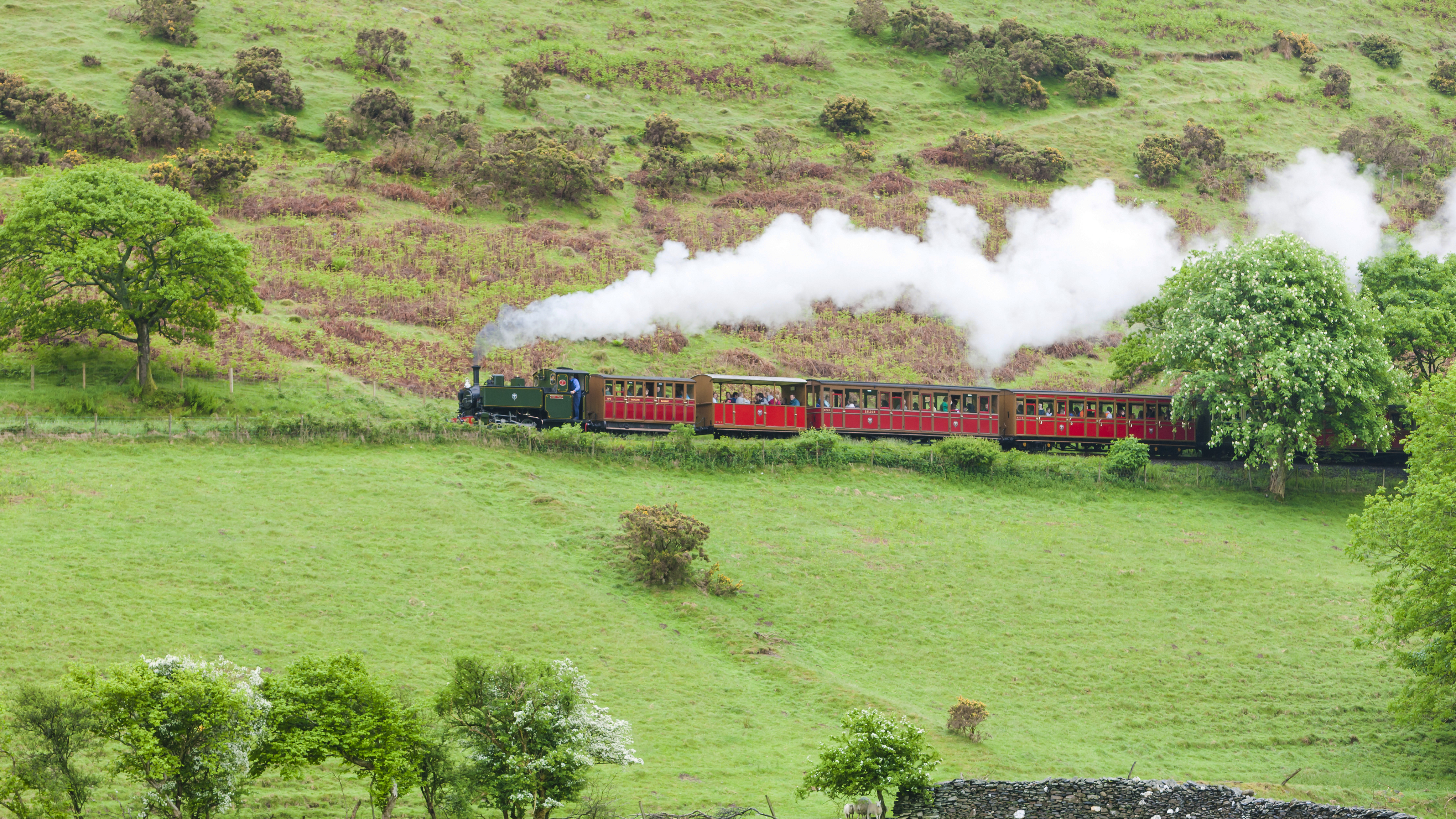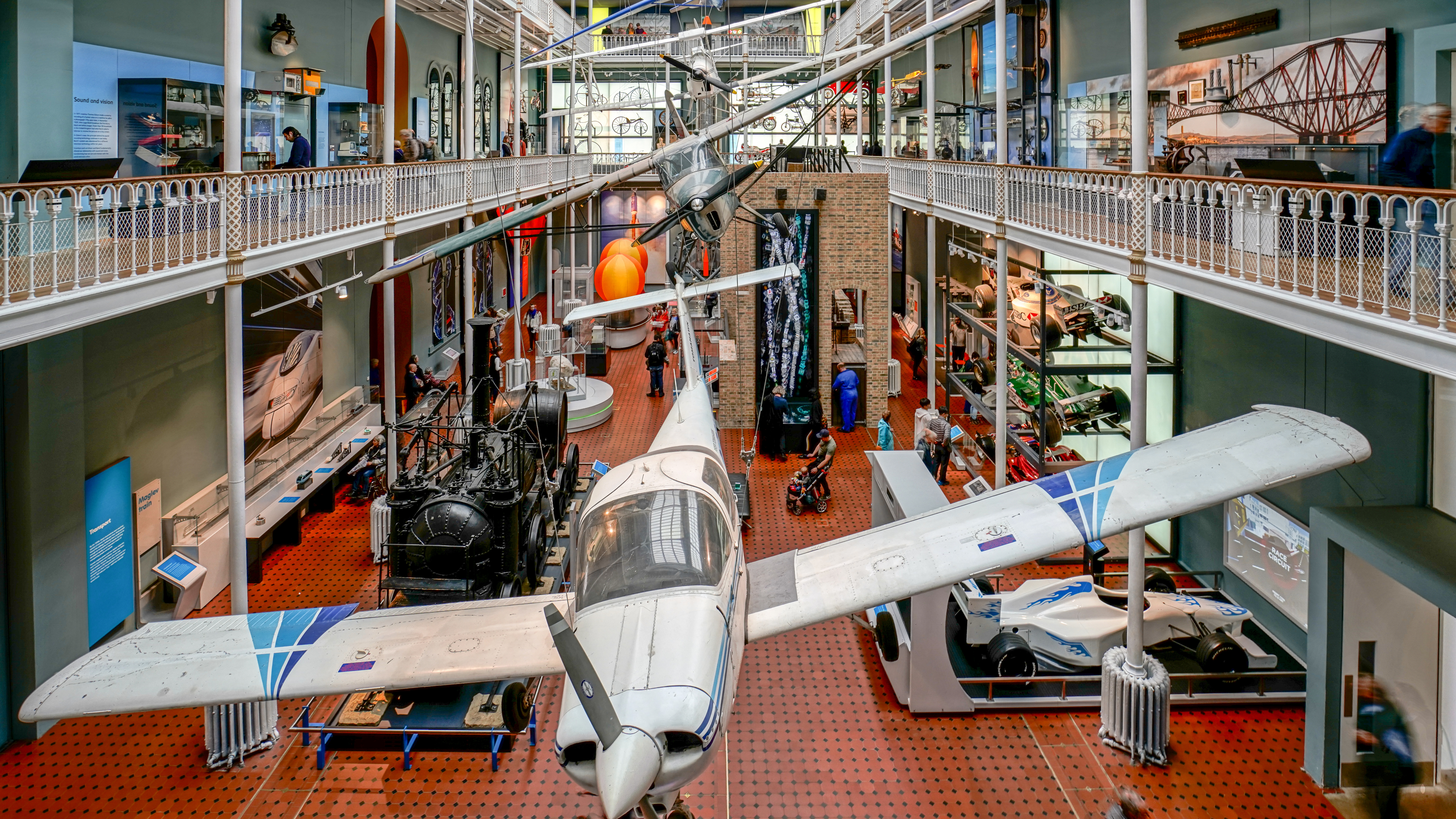Looking for ideas for the Easter holidays? There are plenty of great accessible days out across the UK, whether you want some time to yourself or a fun-filled day with the family.
Here, Rough Guides author Philippa MacKenzie shares 18 of the best places for getting out and about.
England
Muncaster Castle, Gardens and Estate, Cumbria
England’s ‘most haunted castle’ is putting ghost stories on hold this Easter. Instead, join Max the Easter Bunny on an egg hunt. Can you find them all?
There’s something for everyone: take part in an egg-drop challenge, explore the gardens on a family trail, or enjoy flying displays with owls, falcons, eagles and vultures.
The main tarmac and hardcore routes offer wheelchair users and those with limited mobility access to the Hawk & Owl Centre and much of the gardens. The ground floor of the castle is fully physically accessible, however, there’s no step-free access to the first floor (you can take a virtual tour of the upstairs rooms on a computer in the library). Wheelchairs and electric scooters are available to use free of charge (call 01229 717614 to prebook). Accessible toilets and parking bays are available on site. Visitors with disabilities pay the standard rate for a ticket.
Best for Kids’ Easter activities.
The Glasshouse International Centre for Music, Gateshead
The Glasshouse International Centre for Music © Shutterstock
The Glasshouse has a cracking line-up this April with performances by Amrita Kaur (soul meets R&B meets Punjabi folk), The Hallé (Shostakovich’s Fifth Symphony and Rachmaninov’s Third Piano Concerto) and home orchestra the Royal Northern Sinfonia (live soundtrack to The Gruffalo and Room on the Broom films).
Awarded Gold by Attitude is Everything, accessible facilities are top-notch. Priority parking spaces for Blue Badge holders in the venue car park and near the entrances to the building (scan your Blue Badge at the payment machine for free parking), level access to all areas, accessible toilets (including a Changing Places toilet), loan wheelchairs and sensory aids, priority seating before performances and more. Join the Access Scheme and you’ll get a free ticket for a carer when you book a gig or concert.
Best for music lovers.
Herbert Art Gallery and Museum, Coventry
Herbert Art Gallery & Museum © Shutterstock
Small enough not to be overwhelming but with plenty to see, touch and smell, the Herbert Art Gallery and Museum is perfect for curious young minds. On loan from the Natural History Museum, replica diplodocus Dippy the Dinosaur gets star billing. There are all sorts of intriguing odds and ends in show, from an ogham stone to aurochs’ horns.
Parking can be awkward, but there are two accessible bays on Bagley Lane opposite the venue entrance. Once inside, the Herbert is very disability friendly: fully wheelchair-accessible with lift transfer between floors, accessible toilets on the ground and first floors, well-equipped sensory backpacks and easy-to-read text panels. Guests with accessible needs are entitled to a free carer ticket.
Best for fledgling museumgoers.
Fairhaven Woodland and Water Garden, Norfolk
Fairhaven Woodland and Water Garden © Shutterstock
The ultimate get-away-from-it-all destination. Fairhaven Woodland and Water Garden offers 130 acres of cultivated, wild and natural plantings and a private broad. Walk, scoot or wheel along four miles of well-managed woodland paths, then it’s all-aboard! for a 20-minute boat ride around Fairhaven and the South Walsham Board or a 50-minute trip up the River Bure past St Benet’s Abbey.
There are a couple of mobility scooters for hire and an accessible boat with a ramp can be made available with advance notice, just call 01603 270449. Accessible toilets and parking bays are available on-site. Visitors with proof of disability and carers are entitled to concession tickets.
Best for garden enthusiasts.
Grand Western Canal Country Park and Local Nature Reserve, Devon
Stretched between Tiverton and Lowdwells Grand Western Canal Country Park and Local Nature Reserve is the perfect place to cast off your Easter sugar hangover. The towpath is largely flat and well-surfaced with compacted limestone chippings along its 11-mile run making it accessible for wheelchair and mobility scooter users. The horse pulling the barge (call 01884 253345 if you are interested in a trip) has priority over all other users, so keep your eyes and ears open. There are four wheelchair-accessible fishing platforms along the route, so keen anglers may want to bring their rod and tackle.
Accessible parking spaces (pay-and-display only) and public toilets are located at Canal Basin (the park’s main access point) and Sampford Peverell. Free admission.
Best for scenery and wildlife.
Chessington World of Adventures, Surrey
Theme park, zoo and aquarium all rolled into one, there’s a whole lot of everything at Chessington. Take the plunge on Croc Drop or venture into the deep, dark wood on a Gruffalo-themed river ride. Have close encounters with over 1,000 animals. Snap a selfie with Bonnie the Bunny and egg hunt on the Easter trail.
Check the Accessibility Guide and Prosthetics & Limb Differences Guide to see what you can and can’t ride, then queue digitally with a Ride Access Pass. Accessible toilets are located across the site (including a Changing Place toilet). Wheelchair hire is free for Blue Badge holders but you’ll need to leave a security deposit. Blue Badge parking is available in the Lodge Gate Car Park. Guests with proof of disability are entitled to one free carer ticket.
Best for kids and big kids.
Science Museum and Natural History Museum, London
Natural History Museum © Shutterstock
Shiny machines, mind-boggling inventions, hands-on exhibits versus animatronic dinosaurs, creepie crawlies and zoological curiosities. Spare yourself the tough call and do both.
Home to rockets and spacecraft, make the Exploring Space gallery your first port of call at the Science Museum. It’s scheduled for a phased closure after the Easter holidays, so blink and you’ll miss it.
The Science Museum is particularly good for accessible days out. Most lifts are wheelchair-accessible and have audio and Braille labelling, but due to a technical issue, there is currently no step-free access to the mezzanine level in Making the Modern World and Flight galleries. Accessible toilets are available throughout and there’s a Changing Places toilet on Level 0. Loan wheelchairs can be borrowed on the day (ask at the Information Desk or call 033 0058 0058 to prebook). Ear defenders, a sensory map and a visual story are available for neurodivergent visitors. General admission is free but you need to prebook a ticket. Free carer tickets are available for some paid activities and exhibitions.
Over at the Natural History Museum, Hintze Hall with its blue whale skeleton is the gallery not to miss. Under normal circumstances, physical accessibility is good with lift transfer between floors. If you are sensing a but coming, you’d be right. At the time of writing, many lifts were out of service making the upper floors inaccessible to visitors with mobility issues. Loan wheelchairs are available near the Cromwell Road and Exhibition Road entrances. Accessible toilets are available on-site. A hard copy quiet spaces and galleries guide is provided for visitors with neurodiverse conditions. General admission is free but you still need to prebook a ticket. Free companion tickets are available for paid exhibitions.
Twelve Blue Badge parking spaces are available on Exhibition Road. Parking is limited to four hours between 8.30 am and 6.30 pm.
Best for multitaskers.
Horniman Museum and Gardens, London
If museums were given awards for whimsy, the Horniman would be a shoo-in. Dedicated to anthropology, natural history (note the Natural History gallery is closed until 2026) and musical instruments, there are all sorts of fantastic artefacts and oddities. Add in an Aquarium, Butterfly House and Robot Zoo and you’ve all the ingredients for fantastic accessible days out. And that’s before the Horniman Spring Fair comes to town with live music, street food, traditional fête games and an Easter bonnet parade.
The site is largely mobility-friendly, with two on-site accessible parking spaces, loan wheelchairs and lift access to all exhibition areas, but the garden paths can be steep. Entrance to the museum and gardens is free but there’s a charge for the Aquarium, Butterfly House and Robot Zoo and some events and exhibitions. Universal Credit tickets provide entry at a reduced price.
Best for museum-going families.
Yorkshire Wildlife Park, Doncaster
Yorkshire Wildlife Park © Shutterstock
Have close encounters with over 70 different species, including lions, tigers and … dinosaurs at Yorkshire Wildlife Park. Populated with 30-odd animatronic dinosaurs Pangea feels like you’ve stepped into Jurassic Park. Easter is coming early with the Easter Character Breakfast on 12–13 April and 19–20 April. Can you help the Easter Bunny crack the case of the disappearing eggs?
Yorkshire Wildlife Park is excellent for wheelchair-accessible days out, with wheelchair-accessible pathways, accessible parking and toilet facilities (including a Changing Places toilet), wheelchairs (free) and mobility scooters (charge) for hire, just call 01302 535057. Visitors with proof of disability and carers are entitled to concession tickets.
Best for wildlife adventurers.
Northern Ireland
Hillsborough Castle and Gardens, County Down
Hillsborough Castle and Gardens © Shutterstock
Celebrate Easter like royalty at Hillsborough Castle and Gardens. Tour the history-making grand staterooms, including the Throne Room, then head outside for a bonanza of buds, blooms and bunnies with the Lindt Gold Bunny Hunt.
Physical accessibility is variable. The Walled Garden is fully accessible, with a step-free clearly-marked route to the castle entrance, but due to the natural terrain, visitors with limited mobility and wheelchair users will find some of the gardens and grounds inaccessible. The staterooms are all on the ground floor with step-free access. Free-to-use wheelchairs are available on a first-come, first-served basis. Accessible toilets (including a Changing Places toilet) and Blue Badge parking bays are available. Visitors with proof of disability are entitled to concession tickets and one free carer ticket. Visitors receiving benefits are eligible for reduced-price tickets.
Best for history and garden lovers.
Titanic Belfast, County Antrim
Titanic tender SS Nomadic crew cabin © Shutterstock
Self-guide through ten interactive, multimedia galleries and learn the story of the RMS Titanic from blueprint to lasting legacy. Explore her mini-me tender, the SS Nomadic. Then take things outdoors with the complementary one-hour guided Discovery Tour.
Titanic Belfast has a laundry list of accessibility features and resources: accessible on-site parking and electric car charging points, fully accessible circulation space and galleries, hire wheelchairs (call 02890 766386) and mobility scooters (call 02890 766399), lift access to all floors, seating for rest points, accessible toilets (including a Changing Places toilet), VIP wristbands, a sensory guide and aids (with a refundable deposit) for neurodivergent visitors. Visitors with disabilities are entitled to one free carer ticket.
Best for Titanic fanatics.
WWT Castle Espie Wetland Centre, County Down
Dive into the wonderful world of insects at Castle Espie Wetland Centre with a brand-new Lloyd of the Flies Wetland Bug Hunt AR trail and minibeast hunting and bug hotel building sessions over the Easter weekend.
Castle Espie is fully accessible with on-site parking, accessible toilets, wide flat pathways and step-free bird hides. Two mobility scooters (Shop Mobility customers only) and one wheelchair are available, just call 028 9187 4146. Carers accompanying visitors with a disability are entitled to a free ticket.
Best for nature detectives.
Wales
Celtic Quest Coasteering, Pembrokeshire
Adventure swimming, bellyflopping, cliff jumping … test your limits with a two-hour coasteering adventure. Celtic Quest Coasteering welcomes guests with various access needs and can organise bespoke accessible sessions. Call 01348 837337 to discuss individual requirements. The team will meet you at the informal parking area adjoining Abereiddy Beach. There are no changing facilities and the nearest accessible toilets are at Porthgain (three miles away).
Best for daredevils.
Talyllyn Railway
Talyllyn Railway © Shutterstock
Steam through beautiful Snowdonia National Park on the Talyllyn Railway. The line runs seven miles inland from Tywyn on the coast to Nant Gwernol. Hop on board on Good Friday for the Stations at Stations (Stations of the Cross) or hold out until Sunday for a dino-themed adventure.
Lightweight portable ramps allow wheelchair users to board the trains at Tywyn Wharf, Rhydyronen, Dolgoch, Abergynolwyn and Nant Gwernol stations. Accessible toilets are located at Tywyn Wharf and Abergynolwyn stations. Passengers with disabilities and accompanying carers are eligible for reduced fares.
Best for train enthusiasts.
Harlech Castle, Gwynedd
Have an action-packed Easter at Edward I’s mighty coastal fortress with the Ardudwy Knights: archery displays, sword fights and falconry talks. Plus an Easter Egg Trail.
Physical access at Harlech has been improved where practically possible (for example, the floating bridge linking the visitor and castle), however, the towers and wall walks are only reachable via steep, narrow uneven stairs. Visitors with disabilities, plus a companion, receive free entry.
Best for medievalists.
Scotland
The Royal Yacht Britannia, Edinburgh
Who doesn’t secretly love a peek into the homes of the rich and famous? Or in this case, their floating palace. To get the most out of the experience, take the free audio guide tour (one for adults and one for kids) and look out for Clarence the Corgi and his friends hiding around the yacht.
Equipped with lifts and ramps, Britannia’s considerably better for accessible days out than you’d expect though not without some limitations. To navigate tight corners wheelchairs should be no wider than 670mm. Free parking is available in the Ocean Terminal Car Park. Accompanying carers are eligible for free admission.
Best for royalists.
National Museum of Scotland, Edinburgh
National Museum of Scotland © Shutterstock
Covering natural history, archeology, design and fashion, science and technology, and world decorative arts this museum is certainly a box ticker. And did we mention the views from the rooftop terrace?
Accessibility around the museum is excellent: loan wheelchairs, lifts to all floors, accessible toilets (including a Changing Places toilet), sensory packs and induction loops. There isn’t a designated car park, but you’ll find four Blue Badge parking bays on Chambers Street. Free admission.
Best for generalists.
Kelvingrove Art Gallery and Museum, Glasgow
With 22 cross-disciplinary themed galleries to explore, the Kelvingrove Art Gallery and Museum is as engaging for kids as it is for adults. Highlights of the 8,000-piece collection include world-class fine art, a Spitfire, arms and armour, and a menagerie of stuffed animals.
Kelvingrove is fully accessible with free Blue Badge parking, lifts to all levels, accessible toilets on each floor, loan wheelchairs and portable stools. The museum is also part of Glasgow Life’s autism-friendly programme. Free general admission.
Best for art and history lovers.
For more inspiration on accessible days out around the UK, see The Rough Guide to Accessible Britain.
Interested in joining the Motability Scheme?
The Motability Scheme offers an all-inclusive package.
If you are in receipt of a qualifying mobility allowance you can use it to lease a brand-new car, scooter, powered wheelchair or Wheelchair Accessible Vehicle (WAV). Insurance, servicing and breakdown cover are all included in the price you pay.
Request more information about the Scheme.
Featured image credit: Royal Yacht Britannia © Shutterstock
Related articles
Six great reasons to attend Motability Scheme Live
Seven top tips for travelling on your scooter or powered wheelchair
![]()

